How to Gel Stain Your Cabinets
Gel staining is frequently suggested/discussed on the Forum as a less expensive alternative to replacing existing cabinets that are still in great shape. But, how do you do it? Well, read on!
From CelticMoon...
You just need time, maybe $50 in supplies, and patience. No skill.
Here's more than you need to know:
My cabinets are frameless, good condition and good layout. But the finish had gone orange and ugly, with the oak graining too busy for me. Cabinets are 18 years old, very poorly finished oak veneered slab doors. Plain with no crevices. They didn't even take the doors off to finish them!!! No stain or finish on the hinge side edges. Cheezey, huh?
I looked into changing out cabinets, but that was way too much money, since my layout was OK. Painting didn't seem right because the doors were plain slabs. I considered new doors but that still meant a lot of money. For a few years I tried to figure a way to add molding toward a mission look, but the rounded door edges made that impossible. Then trolling in a kitchen emporium showroom this last year I noticed dark wood slab doors, kind like mine, but darker. That was the answer.
First I tried Minwax Polyshades. Dicey product. Hard to brush on neatly, then gummy, then seemed to leave a sticky tacky residue. I did a thread on the Woodworking Furum "Evil Polyshades to the Rescue" which elicited a lot of conflicting "expert" opinions and arguments that one must strip to bare wood.
(Thread may still be around as that Forum moves slow.) I properly stripped acres of woodwork in an old Victorian when I was young and stupid. Never again! Jennifer-in-clyde (in the same boat) and I stumbled around on that woodworking thread to get to this method.
Shopping List: electric screwdriver or screw drill bits
mineral spirits to clean the years of gunk off the cabinet
miracle cloths (optional)
fine sandpaper
box-o-disposable gloves from walgreens or the like
old socks or rags for wiping on coats
disposable small plastic bowls or plates, and plastic spoons or forks for stirring/dipping (optional)
General Finishes water base Expresso stain (pretty thick, but not quite a gel) This one may not even be a needed step if the Java gets it dark enough.
General Finishes Java gel stain (poly based)
General Finishes clear top coat (poly based)
old sheets or plastic sheeting or newspaper
Rockler woodworking stores are a good place to find the General Finish products. Or some larger hardware stores. Quart of each was more than enough for my 60 doors and drawer fronts and goes for $12-14 at Rockler. There are smaller sizes if your project is small.
Setup and Planning:
You will need a place to work and leave wet doors to dry overnight - I set up 2 spaces, garage for sanding/cleaning and basement for staining/sealing. Use newspaper or plastic to protect the surface and floor. Figure out how you will prop doors to dry.
Plan blocks of 20-30-minutes for sanding/cleaning bundles of, say, 6 doors at a time. Then just 10 minute sessions to wipe on coats. The coats will need to dry for about 24 hours, so figure that each section of the kitchen will be doorless for 4 or 5 days. Divide the job up into manageable chunks.
Preparation:
- Take off doors and drawer fronts. Use screw drill bits on an electric drill if you don't have an electric screwdriver. Remove all the hardware. *Mark alike things so you know what goes back where.*
Clean the doors thoroughly. Not with TSP but with something pretty strong and scrub well. There's years of grease there.
Sand LIGHTLY, just a scuffing really. Just enough to break the finish and give it some tooth, no more than a minute a door. A miracle cloth is good for getting most of the dust off. Then wipe well with mineral spirits to clean and get the last of the gunk off.
Staining:
- In order, we're gonna put on:
- General Finishes Expresso water based stain (1-2 coats) - optional
- General Finishes Java gel stain (couple coats)
- General Finishes Clear urethane gel topcoat in satin (couple coats)
- But first put on work clothes, tie up your hair (Tom, you may skip this step, LOL) and pop your phone into a baggie nearby (you know it will ring).
Glove up.
*First do a trial on the back of a door and check if Java coats alone suffice. If the Java alone is to your liking, just skip the Expresso and return it.* Open and stir up the Expresso stain, then spoon some into a plastic bowl. Close the tin so it doesn't get contaminated. Slide a sock over your hand, grab a gob of Expresso and smear it on. Wipe off the excess. Let it dry well - overnight is good. It will lighten as it dries, but then darken again with any other coat or sealer. A second coat can end up with a deeper tone at the end - though it might seem like the second coat is just dissolving the first. YMMV.
Repeat with Java gel. This is thicker and poly based (*not water cleanup!*=messier). Color is a rich dark reddish brown. Wait for the second coat to judge if the color is deep enough for you. I wanted a very deep dark color, like melted dark chocolate. So I went pretty heavy on these layers. *I did not sand between coats*.
Repeat with clear gel top coat. This will give you the strength you need in a kitchen.
Do the same process with the cabinet sides, face and toekick area. Might need to divide that up also, and stagger the work: doors/cabinets/doors/etc.
NOTE: The cloth or socks used for the gels are very flammable! Collect and store them in a bucket of water as you go and then dispose of them all properly.
Finishing and Reassembly:
- I suggest you put the doors back up after one clear coat, then you can check everything over and darken an area with more Java if needed, followed by a clear coat.
- When it all looks right, go over it all again with another clear gel coat. Or two.
- Install your hardware.
- The feel of the finish should be wonderful, really smooth and satiny. Color deep and rich - way nicer than that faded, beat 80's oak color.
Final Thoughts:
- Definitely experiment first with the back of a door or drawer front to be sure it is the look you want.
- Yes, this takes a couple days to coat, dry, recoat, dry, etc but you may discover that the Java alone does the trick and this will save you A LOT of work.
- Front end patience is worth it.
This is a pretty easy project to do. Hard to screw it up. The worst is the prep - relative to that, smearing on the coats is cake. I had over 60 pieces (big kitchen) AND island sides and book shelves, etc and I admit I lost steam partway through. Had to push myself through the last of it. But it was worth it. Folks think I got all new cabinets - it looks that good. Now the finish will not be as durable as factory finish - go at it with a Brillo pad and you WILL abrade it. But it has held up pretty well. And after a year of pretty heavy use, I've just had a few nicks, easily repaired.
I added smashing hardware, raised my passthrough, resurfaced the Corian (also simple but messy and tedious) and replaced the DW and sink. It looks gorgeous to me and I really enjoy the space - how it sits all quiet, clean and serene, then gets all crazy with the food and folks du jour. I couldn't be happier, especially that I didn't have to work another year just to pay for the update!!
Link to cabinets in progress:
http://photobucket.com/albums/b45/celticm00n/kitchen%20cosmetic%20update%20project/kitchen%20during/
Link to almost finished cabinet pix:
http://s16.photobucket.com/albums/b45/celticm00n/kitchen%20cosmetic%20update%20project/finished%20bit%20by%20bit/?start=20n
Good luck with your project!! Feel free to ask me any questions as you go.
And let me know if you try it and how it turns out.
Thread: Celticmoon, are you out there? Gel stain question (OT)
Thread: Celticmoon?
Thread: Evil Polyshades to the rescue????
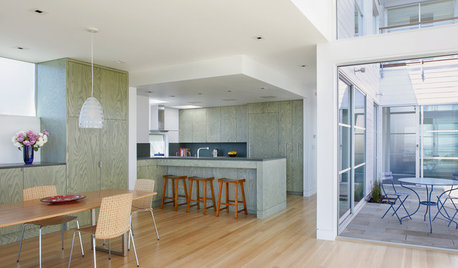
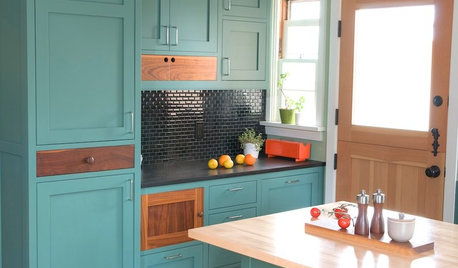
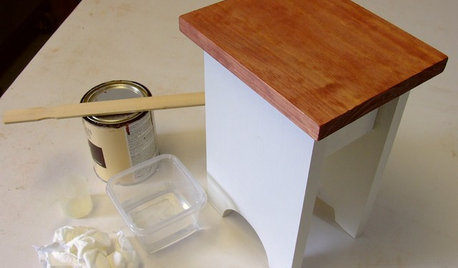
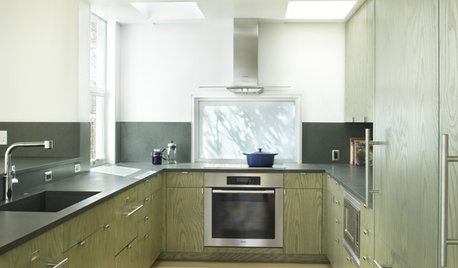
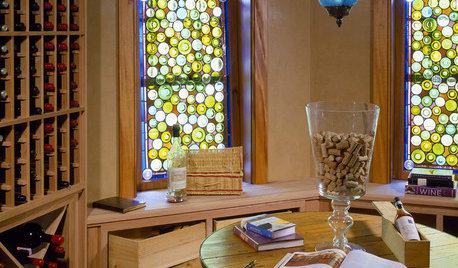
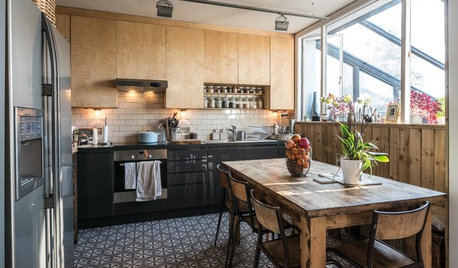

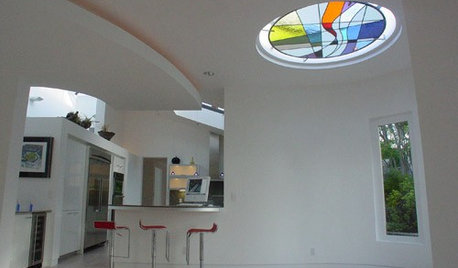
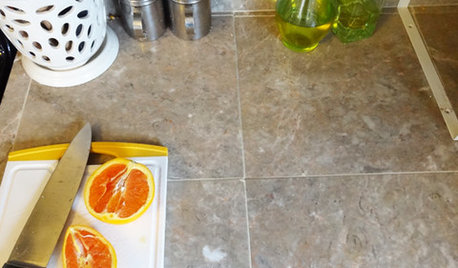
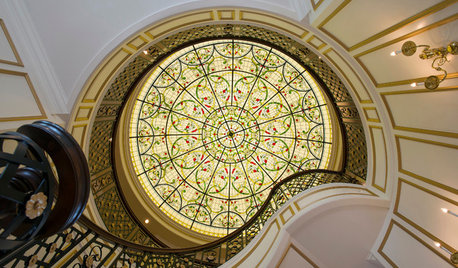



Related Discussions
What kind of wood are my cabinets? and Gel Stain!
Q
Kitchen
Q
New to Kitchens? Read Me First!
Q
Replace Kitchen Cabinet Doors
Q